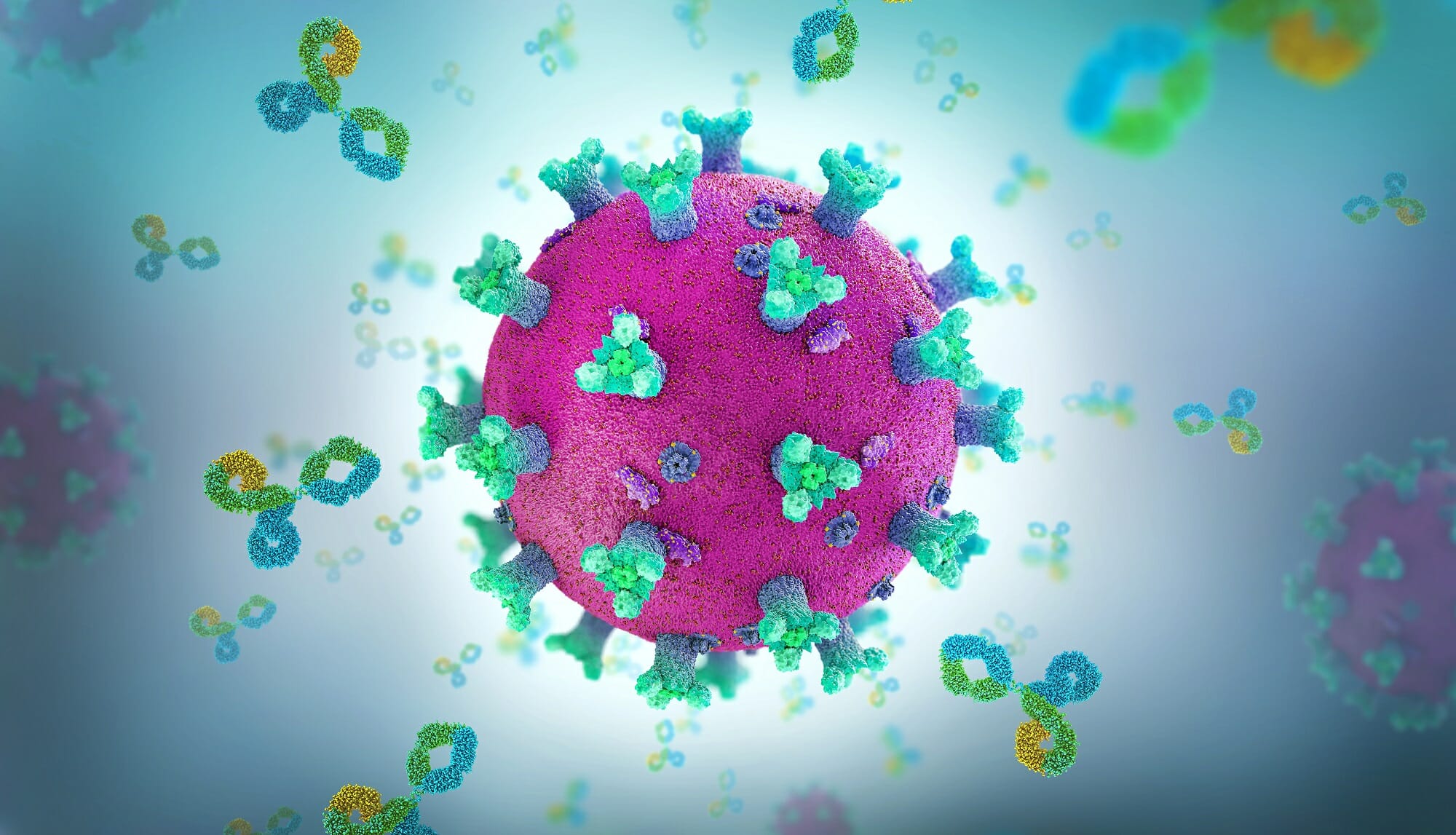Because of the novelty of the coronavirus that causes COVID-19, there is not enough evidence to determine whether antibodies produced after exposure are protective against reinfection. As such, the American College of Physicians (ACP) published rapid, evidence-based living practice points in the Annals of Internal Medicine discussing the role of antibodies in, tests for diagnosing, and tests for estimating the prevalence of COVID-19.
Practice Point 1: Antibody Tests for COVID-19 Diagnosis
The ACP does not recommend using SARS-CoV-2 antibody tests to diagnose COVID-19. This recommendation is based on the limited evidence that suggests not all patients with COVID-19 develop antibodies early in the course of their infection, as the presence and levels of antibodies can vary across patients and be dictated by certain disease characteristics.
Continue Reading
The guideline panel adds that clinicians and patients should be mindful that some SARS-CoV-2 antibody tests may provide false-positive results, which are caused by cross-reactivity with antibodies of other coronaviruses.
Studies also suggest that the sensitivity, specificity, and accuracy of currently available antibody tests widely vary, further complicating their use as reliable diagnostic tools. Variation in the sensitivity and specificity of these tests can also contribute to both false-negative and false-positive results, leading to inaccurate conclusions about infection and possibly inappropriate or insufficient treatment.
Practice Point 2: Antibody Tests for Estimating Community Prevalence
Studies suggest that patients develop immune responses following exposure to the novel coronavirus. The evidence shows immunoglobulin (Ig)A and IgM antibodies are detectable in the majority of patients who are infected with the SARS-CoV-2 virus. Nearly all patients also demonstrate detectable IgG and neutralizing antibodies.
Over time, the prevalence and levels of these antibodies may vary by different patient characteristics, disease symptoms, and disease severity. On average, the levels of each of the antibody types peak between 20 to 31 days following symptom onset or polymerase chain reaction diagnosis. Studies also show that the IgM antibodies may persist for up to 115 days and neutralizing antibodies may persist up to 152 days. Therefore, the ACP notes that antibody tests could be feasible options for estimating community prevalence of COVID-19.
Practice Point 3: The Protective Effect of SARS-CoV-2 Antibodies Against Reinfection
There is a paucity of evidence to suggest that natural immunity is conferred by SARS-CoV-2 antibodies. There is no evidence to suggest SARS-CoV-2 antibodies can predict the presence, level, or durability of any conferred natural immunity, especially as it relates to protection against reinfection.
Given that most patients exhibit detectable antibodies at least 100 days after infection, it may be plausible that natural immunity can occur. However, the panel reiterates that there is no direct evidence to answer the question of whether these antibodies can protect against reinfection.
Some literature indicates that both asymptomatic and symptomatic patients can develop an antibody response indicative of natural immunity following COVID-19, but variables such as disease severity, patient factors, type and amount of antibodies developed, as well as the longevity of those antibodies, play an important role.
The guideline panel cites a small study of hospitalized patients with COVID-19 that reported a single possible case of reinfection during the convalescence stage. This patient did not have IgM or IgG antibodies detected at the 4-week follow-up period.
Limitations of the Practice Points
According to the guideline authors, the practice points presented concern only the antibody-mediated natural immunity response in COVID-19 and do not particularly address the involvement of other natural immune responses, including cell-mediated immunity or vaccine-acquired immunity.
Currently, the only evidence-based recommendation for increasing immunity to the SARS-CoV-2 virus and preventing infection is to receive an authorized COVID-19 vaccine. Additional prevention strategies recommended in the guideline include social distancing, wearing a mask in public, quarantining, and regular hand washing.
“Given limited knowledge about the association between antibody levels and natural immunity,” the guideline authors wrote, “patients with SARS-CoV-2 infection and those with a history of SARS-CoV-2 infection should follow recommended infection prevention and control procedures to slow and reduce the transmission of SARS-CoV-2.”
Reference:
Qaseem A, Yost J, Etxeandia-Ikobaltzeta I, et al; for the Scientific Medical Policy Committee of the American College of Physicians. What is the antibody response and role in conferring natural immunity after SARS-CoV-2 infection? Rapid, living practice points from the American College of Physicians (version 1). Ann Intern Med. Published online March 16, 2021. doi:10.7326/M20-7569
This article originally appeared on Infectious Disease Advisor
this content first appear on medical bag

